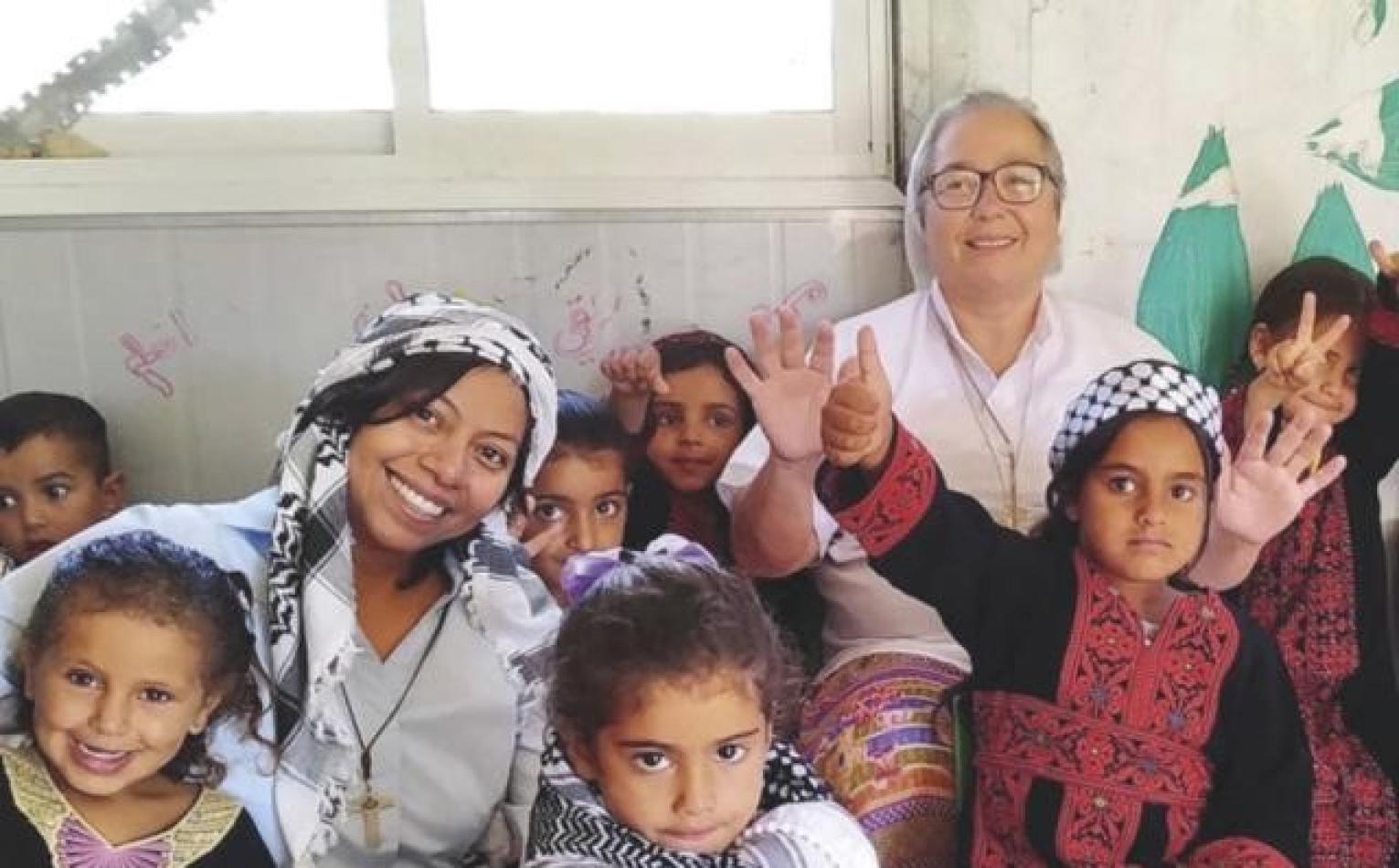Daniel Comboni
Misioneros Combonianos
Área institucional
Otros links
Newsletter
Wednesday, August 23, 2023
Sister Lourdes García, a Mexican Comboni missionary, works in the Bedouin communities of Jahalin. “For twelve years the Comboni Missionary Sisters have been working in the Bedouin communities of Jahalin, located in the Judean desert. We started in the field of health, then in the field of education, with the creation of kindergartens, and finally in every community with training activities for women.” This is her testimony. [Comboni Missionaries]
Assalamu Alaikum (‘Peace be upon you’) is the greeting with which we are greeted every time we visit the Bedouin communities in Palestine. Although the word ‘peace’ is part of the daily encounter, its experience remains a longing that rests in the hearts of many Bedouins. The constant threat of forced displacement by the Israeli government, as well as non-recognition by Palestine, leave these Bedouin communities in a situation of exclusion, precariousness, and extreme poverty.
For twelve years the Comboni Missionary Sisters have been working in the Bedouin communities of Jahalin, located in the Judean desert. We started in the field of health, then in the field of education, with the creation of kindergartens, and finally in every community with training activities for women.
The objective is to improve the education of children so that they can continue their studies, and to promote the integration of women in order to improve the quality of life in the different communities. All this with the help of different organizations that have supported various projects. A small interreligious network is being created to reach the most vulnerable. My hope is that we can live and work together for the common good, with each one using the strengths of their own faith, whether they are Jews, Muslims, or Christians.
Our faith is proclaimed through daily gestures and actions, putting to the test the evangelical values of welcome, respect, encounter, and generosity, which thus become reality. Bonds of closeness, dialogue, fraternity, and affection have been created with our Muslim brothers and sisters.
Living together during the significant moments of their lives, I was able to know, in addition to their culture and their traditions, the intimate reality of these communities. The welcome they give us with their joy, generosity and simplicity made us feel at home from the first moment.
We communicate in Arabic, which we learn to be able to express ourselves. Personally, my communication is still limited, but I am very happy to share life with them and to learn from their simplicity and generosity. Every time I understand them a little more and realize that they too have managed to understand me, I see the grace of God that accompanies me and encourages me to be patient and persevering, because I know that through the language, I will get to know them better.
We visit communities and families to learn more about their needs, which is a big challenge. During these visits, we have observed various realities, for example, that women get married very young and no longer continue their studies or training.
Apparently, families prioritise boys; however, many boys do not continue their studies for various reasons, such as lack of means of transport, economic precariousness or simply because they devote themselves to herding sheep. Furthermore, the vast majority do not know English or Hebrew, which is why they have no opportunities to work outside their environment.
The missionary commitment also continues with the small Christian community of El-Azariyeh, in the city of Lazarus. It is a small Christian community of about ten families. We meet every week to pray the rosary with the women, organise moments of prayer, and visit the sick.
It is a complex reality that we still have much to learn about and understand, but we are encouraged by a strong desire to continue the mission that the Comboni Sisters started more than a decade ago. Continuity with human promotion, through training courses for women and young people, is a concrete way to make them protagonists of their own lives.




